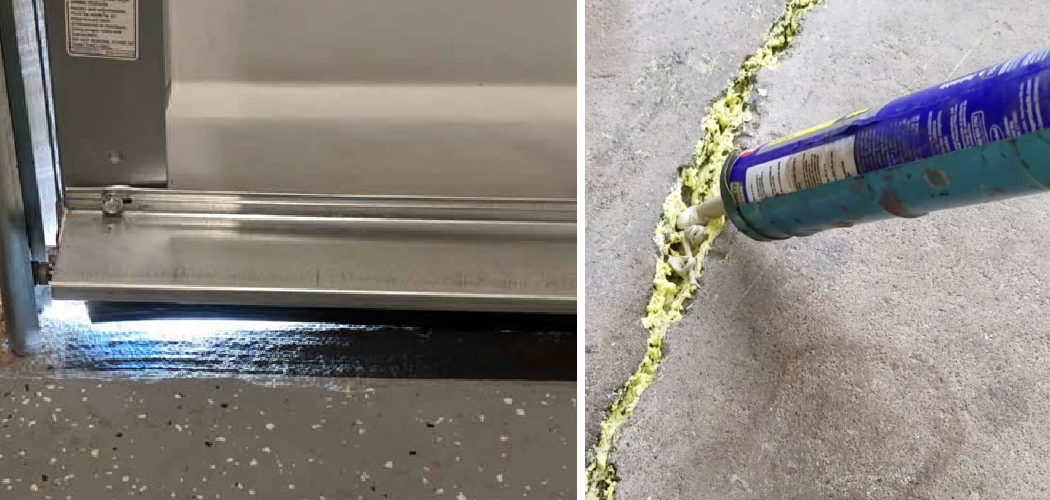It’s that time of year again when the weather gets warmer and the bugs come out. You may have noticed an increase in insects in and around your home, especially at night. Like most people, you don’t want these pests invading your garage. In this blog post, we will give you some tips on how to keep bugs out of garage at night.
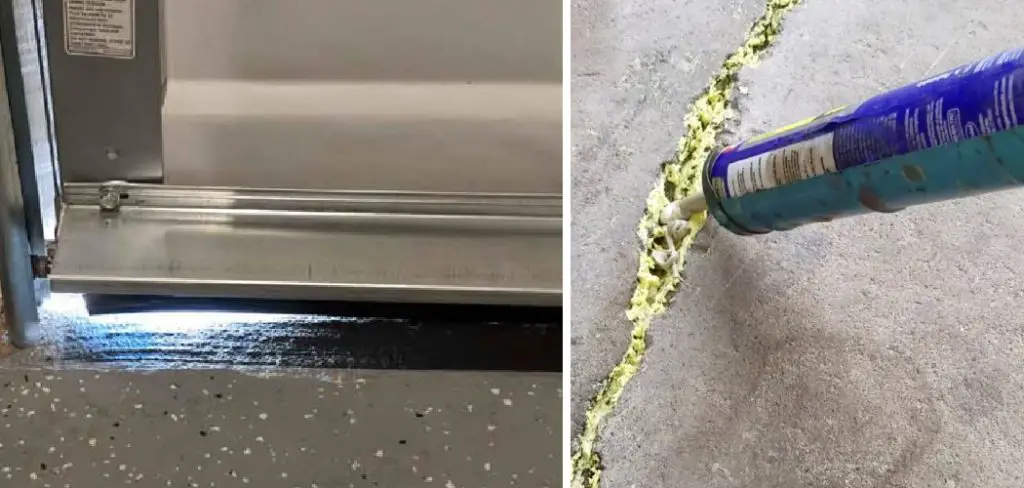
Insects are attracted to light, so one way to reduce their numbers is to turn off any outside lights near your garage door at night. In addition, make sure to seal any cracks or openings around the perimeter of your garage door to prevent them from getting inside. You can also try using a bug spray or insecticide outside your garage door. Be sure to follow the directions on the label carefully and take precautions to avoid contact with the spray. Read on to know more!
Common Types of Bugs That Can Be Noticed in Garage:
1. Termites:
These bugs are very common in many parts of the world. They love to eat wood and so can be found in garages where there is a lot of stored lumber or other wooden objects. Termites can cause a great deal of damage if left unchecked, so it’s important to take steps to prevent them from invading your garage.
2. Ant:
Ants are another type of bug that is commonly found in garages. They typically build their nests in the ground, but they can also be found in cracks and crevices on the walls or floors of a garage. Ants can be a nuisance if they get into your food storage areas, so keeping them out of your garage is important.
3. Cockroaches:
Cockroaches are another type of bug that can be found in garages. They love to live in dark, damp places, and so a garage can provide the perfect environment for them to thrive. Cockroaches can be a big problem if they get into your home, as they can contaminate your food and spread diseases.
4. Spiders:
Spiders are another type of bug that can often be found in garages. They like to live in dark, secluded places, and the garage can provide the perfect environment for them. While most spiders are harmless, a few species can pose a threat to humans, so it’s important to keep them out of your garage.
5. Silverfish:
Silverfish are another type of bug that can be found in garages. They love to live in dark, humid places, so that a garage can provide the perfect environment for them. Unfortunately, Silverfish can be a nuisance if they get into your home, as they can damage your belongings and spread diseases.
6. Rodents:
Mice and rats can easily enter your garage through small openings, so it is important to take preventative measures to keep them out. One way to do this is to install a metal mesh screen over the opening. You can also use a rodent trap or poison bait to get rid of any rodents living in your garage.
7. Sowbugs:
These little creatures are often mistaken for spiders and can be difficult to get rid of. One way to keep them from invading your garage at night is to ensure there’s no food or water available. Be sure to sweep and mop up any spills and fix any leaks in the roof or windows. You can also use an insecticide to eliminate any sowbugs that may be present.
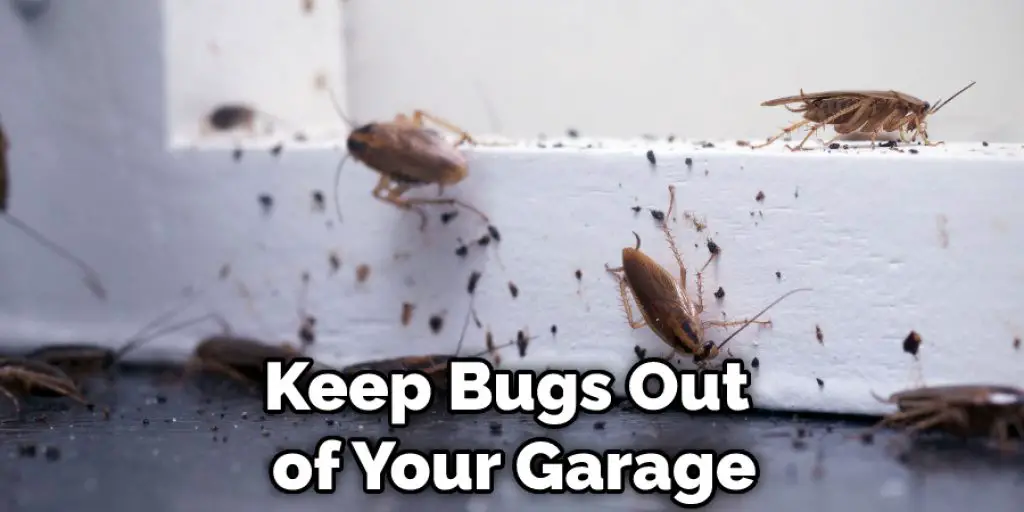
15 Ways on How to Keep Bugs Out of Garage at Night:
1. Remove Any Stored Food:
Anything that can attract bugs should be eliminated from the garage. This includes food items, such as pet food, bird feed, and spilled sugar. All of these can attract bugs and provide them with a hospitable environment to breed. The best way to keep bugs out of your garage is by removing any stored food.
2. Clean Up Spills:
Bugs also love to feast on dirty areas, so keeping the garage clean is key in preventing an infestation. Be sure to clean up any spills or leaks right away, and keep the floors and work surfaces free of clutter. This will make it difficult for bugs to find a place to thrive. You can also use insecticides or natural remedies like vinegar and water to clean your garage.
3. Use Pesticides:
If you have a bug problem in your garage, one way to keep them out at night is to use pesticides. You can either buy pesticides from a store or make your own using ingredients like soapy water, vinegar, or essential oils. Just be sure to follow the instructions on the label carefully so that you don’t wind up harming yourself or your family.
4. Set Up a Barrier:
Another way to keep bugs out of your garage at night is to set up a barrier. This could mean sealing up cracks and holes in the walls and doors or setting up a screen door. By doing this, you’ll make it much harder for bugs to get into your garage in the first place. The tighter the seal, the better.
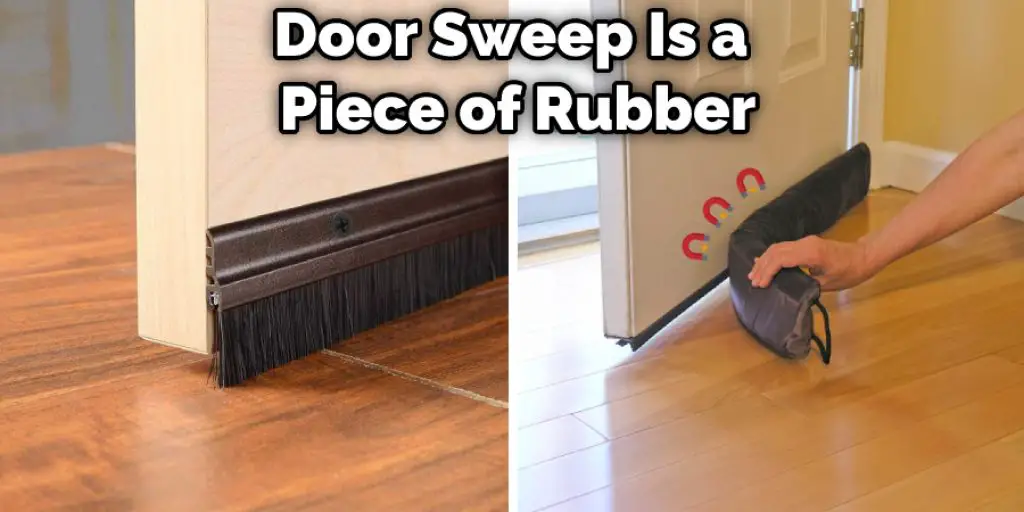
5. Use a Bug Spray:
If you do see bugs in your garage, you can get rid of them by using a bug spray. Be sure to read the directions on the bottle carefully to make sure you’re using it safely and effectively. Then, spraying the area where the bugs are congregating. This should help to keep them out of your garage at night.
6. Keep Your Garage Dry:
Moisture is a bug’s best friend, so keeping your garage as dry as possible is key in preventing it from taking up residence. Ensure to repair any leaks and keep things like potted plants away from the walls to minimize moisture. You can also use a dehumidifier to reduce humidity levels in your garage.
7. Seal Up Cracks and Gaps:
Inspect the outside of your garage for cracks and gaps and seal them up with caulk or weather-stripping. These cracks and gaps are often how bugs and other pests get inside, so you’ll keep the bugs out by sealing them up. You can also use steel wool to fill in any larger gaps. It’s a great deterrent for rodents and other pests.
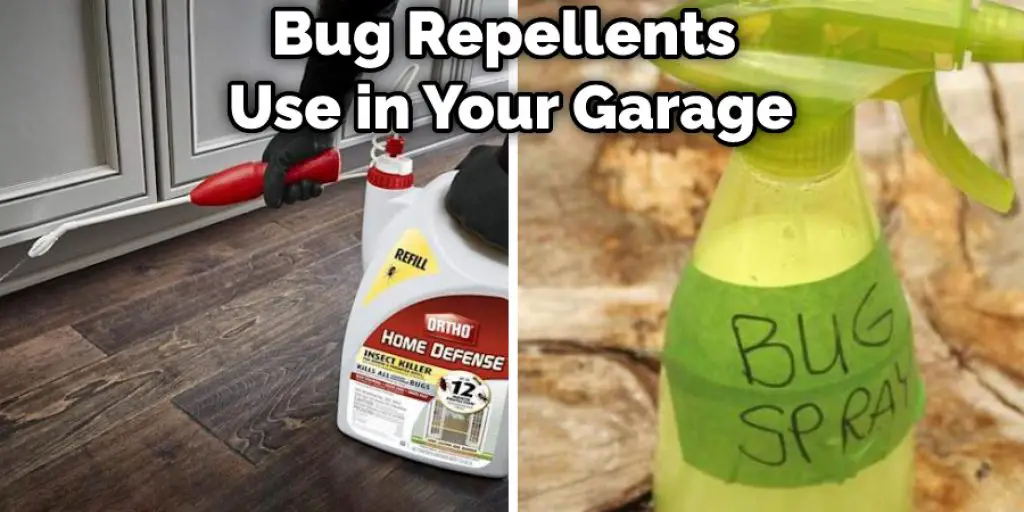
8. Install a Door Sweep:
A door sweep is a piece of rubber or vinyl that attaches to the bottom of your garage door and sweeps the floor as the door opens and closes. This will help to keep bugs from sneaking in under the door. You can purchase one at most hardware stores or online. It is easy to install and a great way to keep bugs out of your garage at night.
9. Use a Bug Light:
If you’re having trouble getting rid of bugs in your garage, try using a bug light. Bug lights use ultraviolet light to attract and kill insects. They’re safe to use around children and pets, and they’re a great way to get rid of bugs without using chemicals. You can also try installing a bug zapper in your garage.
10. Keep Your Garage Clean:
A clean garage is a bug-free garage. Ensure to sweep and mop the floors regularly and clean up any spills or messes as soon as they happen. This will help to discourage bugs from taking up residence in your garage. Additionally, keeping clutter to a minimum will make it difficult for bugs to find places to hide and breed.
11. Install a Garage Door Screen:
If you don’t want to have to deal with bugs at all, consider installing a garage door screen. This screen attaches to the top of your garage door and allows you to leave the door open without letting bugs inside. It’s a great option for those who use their garage as a workspace or entertainment area.
12. Use a Citrus Spray:
If you have an orange or lemon tree in your garden, you can use the peels to make a natural citrus spray that will keep bugs away. First, simmer the peels in water for about 30 minutes, strain the solids, and pour the liquid into a spray bottle. Then, spray the solution around your garage door and entryway to keep bugs away.
13. Use a Natural Bug Repellent:
There are many different natural bug repellents that you can use in your garage. Some of the most popular repellents are peppermint oil, lavender oil, and citronella oil. You can diffuse these oils in the air or put them on a cloth and wave it around. Just be sure to use caution when handling essential oils.
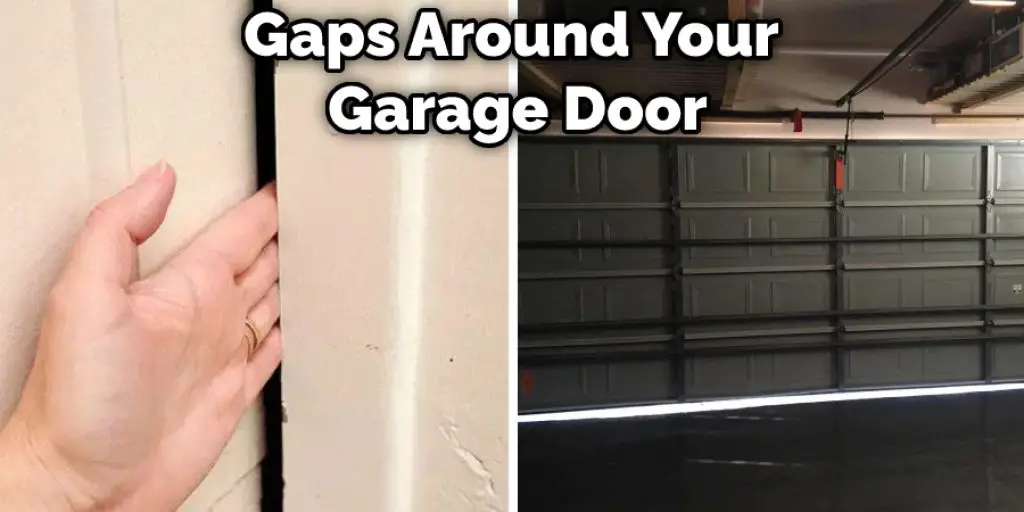
14. Use Weather-stripping:
You can purchase weather-stripping tape or sealant at most hardware stores. This will create a tight seal around your garage door, preventing bugs and other pests from sneaking inside. Be sure to attach it to the door frame, not the door itself, so that it doesn’t interfere with the operation of the door.
15. Keep Things Tidy:
Bugs are attracted to food and garbage, so it’s important to keep things tidy in your garage. Sweep up any food or crumbs that fall on the floor and make sure to put garbage in a sealed container. This will help to keep bugs away from your garage. Additionally, keeping your garage clutter-free will make it easier to spot any potential signs of an infestation and take action before it becomes a bigger problem.
Some Helpful Tips to Keep Bugs Out of Garage:
Here, we have given tips on how to keep bugs out of garage at night.
1. Keep the area around your garage door clean and free of debris.
2. Inspect weatherstripping and seal any gaps around your garage door.
3. Install a door sweep on your garage door to help seal any gaps at the bottom.
4. Keep your garage door closed as much as possible.
5. If you have any cracks or openings in your garage, seal them with caulk or another type of sealant.
6. Use a bug zapper or insecticide inside your garage to help kill any bugs that may be present.
7. Take measures to control the moisture level in your garage.
8. Keep a flashlight and insecticide spray handy to deal with any bugs that may get in.
Why Should You Keep Your Garage Bug Free?
Pests are not only a nuisance, but they can also carry diseases that pose a serious threat to your health. For example, diseases like the West Nile virus and Lyme disease are transmitted by pests like mosquitoes and ticks.
Not only can pests transmit diseases, but they can also cause damage to your property. Carpenter ants, for example, are known to cause structural damage to homes and other buildings. So, keeping your garage free of bugs is essential to protecting your health and your property.
You can do several things to keep bugs out of your garage. One of the most important things to do is to make sure that your garage is properly sealed. Ensure that all doors and windows fit tightly and use caulk or weatherstripping to seal any cracks or gaps. You should also install door sweeps on all doors.
What is the Best Way to Get Rid of Bugs in a Garage?
The best way to get rid of bugs in a garage is to use a bug-free spray. This will kill the bugs and keep them from coming back. It is important to use a bug-free spray that is specifically designed for garages, as other sprays may be harmful to your car or other belongings. You can also use a bug zapper to get rid of bugs in a garage. This will instantly kill bugs and is a more environmentally friendly option than using a bug-free spray.
However, you will need to replace the zapper regularly to keep the bugs from coming back. Finally, if you have a lot of bugs in your garage, you may want to hire a pest control company to come and spray the area. This is the most effective way to get rid of bugs in a garage, but it can be expensive. If you cannot afford to hire a pest control company, you can try using a homemade bug spray. This spray is made with vinegar and dish soap and effectively kills bugs.
Why Bugs Are Attracted to the Garage?
There are many reasons why bugs are attracted to the garage. One reason is that the garage is a warm and dark place, which is perfect for insects to live in. The garage also have a lot of clutter, which provides insects with plenty of places to hide. Plus, food and water can be easily accessible in a garage, making it an appealing place for bugs to live.
How to Seal Garage Door From Bugs?
Sealing the garage door is one of the most effective ways to keep bugs out. You will also be keeping other pests like rodents and snakes away by doing this. There are many different ways to seal your garage door, but the most common and effective way is to use caulk.
You can find caulk at any hardware store, and it is relatively inexpensive. You will want to apply a bead of caulk around the entire perimeter of the door, making sure to fill any cracks or gaps. Once the caulk is dry, you can add weatherstripping to the bottom of the door to create an additional barrier.
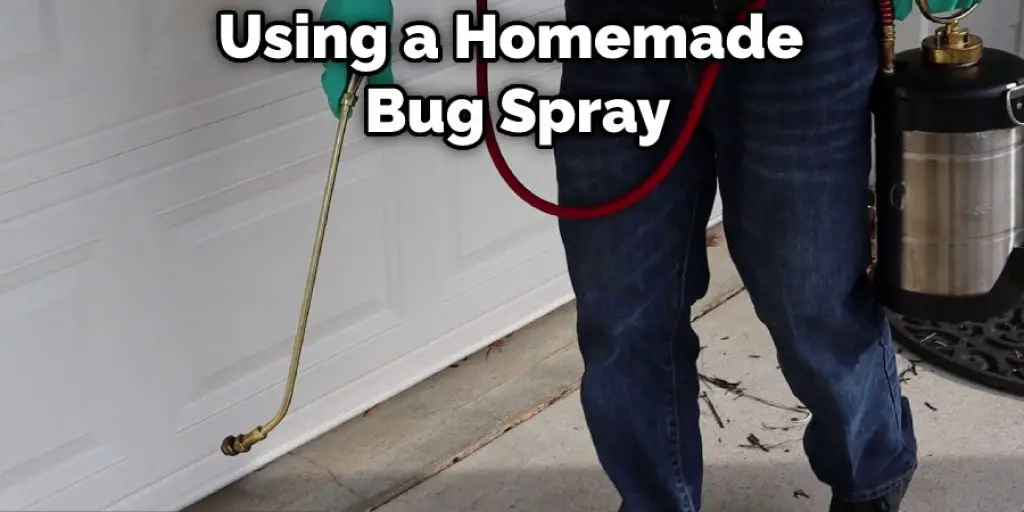
Frequently Asked Questions:
Q: Why Are Bugs More Commonly Found in Garages?
A: Garages provide the perfect environment for bugs to thrive – they are dark, warm, and often cluttered with potential sources of food and water. It’s important to take measures to keep bugs out of the garage to protect your health and property. You can do this by sealing any gaps, keeping the area clean, and using natural bug repellents.
Q: What is the Best Way to Keep Pests From Entering My Garage?
A: The best way to keep pests from entering your garage is by regularly inspecting for and sealing any cracks or openings in the walls or foundation. You can also use a combination of bug zappers, bug sprays, and natural repellents to keep bugs away from your garage.
Q: Can I Use Any Type of Bug Spray in My Garage?
A: It’s important to use a bug spray that is specifically designed for use in garages. Other types of sprays may be harmful to your belongings or even yourself. Be sure to read the labels and follow the instructions carefully when using bug sprays in your garage.
Q: How Often Should I Inspect My Garage for Potential Entry Points?
A: It’s a good idea to inspect your garage for potential entry points on a regular basis, at least once every few months. This will ensure that any cracks or gaps are caught and sealed before they become bigger problems. Additionally, be sure to inspect after any major weather events or changes in seasons as these can affect the structure of your garage.
So, it is vital to keep your garage bug-free by following these helpful tips and regularly checking for any potential entry points. By taking these preventive measures, you can enjoy a pest-free and healthy environment in your garage. Now, go ahead and enjoy your garage without worrying about bugs!
Conclusion:
Bugs are a common problem in the garage, especially during the summer months. You can do several things to keep bugs out of your garage at night. The most important step is to seal any cracks or openings in the garage door and windows.
You can also use a screen door to keep bugs out of the garage. Finally, close all doors and windows when you leave the garage. We hope this blog post has been helpful to guide you on how to keep bugs out of garage at night. If you have any questions or want to know more, then feel free to comment below!

